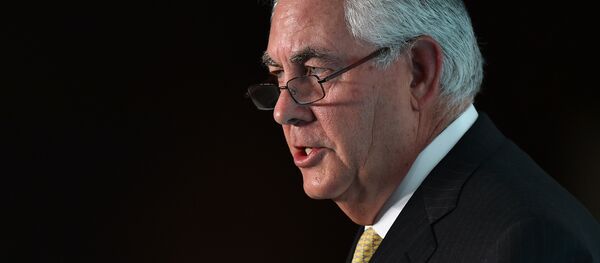"No. The United State has already made its cut of 11 million barrels per day. The United States is governed by market forces, but at the end of the day, I think it’s just important to have a constructive dialogue between the United States and OPEC, and other producers in the world and other consumers in the world," the CEO said on Tuesday.
Earlier in the day, OPEC Secretary-General Mohammad Barkindo said his visit to the United States marks the start of efforts to build cooperation with Washington over industry issues.
When asked how likely is to expect cooperation between the United States and OPEC under the Trump administration, Hess said, it has to do more in terms of having an active dialogue between them.
"In terms of understanding what OPEC producers face, what US producers face, and to help OPEC producers better understand what shale is. It’s a short-cycle supplier. And for shale producers to better understand OPEC’s role in the oil supply mix," Hess explained. "I think this is more about establishing a constructive dialogue than cooperation in and of itself."
On Saturday, OPEC and 11 non-OPEC countries struck a historic deal for the latter to reduce oil output by around 600,000 barrels per day. The reduction amounts to some 1.8 million barrels per day in the first half of 2017. The deal finalized a preliminary agreement reached in Algeria in September.
In 2015, the United States became a net energy exporter for the first time since the 1950s, largely as a result of new technologies such as hydraulic fracturing, or fracking, as well as discoveries of new oil and gas deposits.



